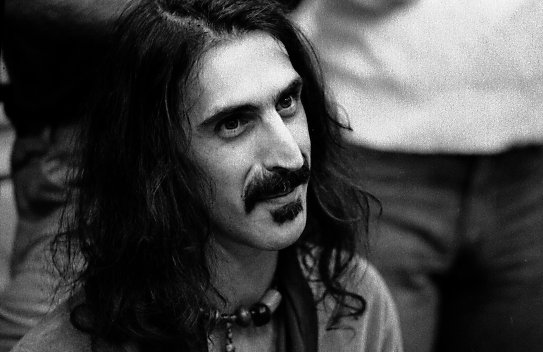
-
Wiki
Mini Biography
Of all the qualities that typified Frank Zappa, perhaps the most striking is that he was a paradox. A workaholic perfectionist rock star who eschewed the hippie culture of the 1960s, deploring its conformism, spurious ideals, and drug use, Zappa was not only a brilliant rock guitarist, but an orchestral composer, innovative filmmaker, music producer, businessperson, iconoclast, and perceptive political and social commentator. His oeuvre continually amazes: over 60 albums of music from rock to orchestral, in addition to innumerable films, concerts, and other accomplishments. Frank Vincent Zappa (b. 21 Dec 1940, Baltimore MD) began to play drums at the age of 12, and was playing in R & B groups by high school, switching to guitar at 18. After narrowly graduating from high school, and then dropping out of Junior College (where he met his first wife, Kay Sherman), Zappa worked in such jobs as window dresser, copywriter, and door-to-door salesperson. With the money he earned from scoring Run Home Slow (1965) (written by his high school English teacher, Don Cerveris), Zappa purchased a recording studio, and, after concocting an allegedly obscene recording for an undercover policeman, spent ten days in jail. Zappa's diverse range of albums (both with the seminal and protean groups The Mothers Of Invention, and Zappa; as well as solo releases) are renowned not only for their bravura musicianship, and satire, but also for offending various groups (usually religious and political). The 200 Motels soundtrack was deemed too offensive by the Royal Albert Hall, who cancelled scheduled concerts in 1975; and the song 'Jewish Princess' (1979) led to Jewish calls for Zappa to apologise. These, and such events as Zappa testifying before Congress in 1985 against rock music censorship, being appointed by Czechoslovakian president V
 - Wiki
- Wiki

Comments
Hungry Freaks Daddy - Motherly Love - Who are The Brain Police - How Could I Be Such a Fool
Lumpy Gravy part 1
The Chrome Plated Megaphone of Destiny - Nasal Retentive Calliope Music
- Frank Zappa exercising his passion for the Doo-Wop genre from the fifties:
Dog Breath, in the Year of the Plague - The Uncle Meat Variations - Nine Types of Industrial Pollution - Project X - King Kong part Vl
Peaches En Regalia - It Must Be a Camel (Jean-Luc Ponty on violin) - The Gumbo Variations Part 1 & Part 2 (Sugar Cane Harris on violin) - Son of Mr Green Genes
Unfortunately there's no youtube videos available with the original songs, so a live recording from 1970 will have to do:
Holliday in Berlin
- And one of the themes he kept working with throughout his career: [url=/url=
Directly from My Heart to You:
The Eric Dolphy Memorial Barbecue - Didja Get Any Onya?
Ps: "Directly" is featuring Sugar Cane Harris on violin.
The small print on the cover:
"A Gypsy mutant industrial vacuum cleaner dances about a mysterious night
time camp fire. Festoons. Dozens of imported castanets, clutched by the
'horrible suction of it's heavy duty hose, waving with a marginal erotic
abandon in the midnight autumn air."
Transylvania Boogie - Chunga's Revenge - The Clap - Twenty Small Cigars
Magic Fingers - She Painted Up Her Face - Penis Dimention - Dental Hygiene Dilemma
Waka/Jawaka - One of Franks finest compositions.
The Grand Wazoo part 1 & 2 - Another totally brilliant big band suite from Frank.
Billy the Mountain Part 1, Part 2 & Part 3